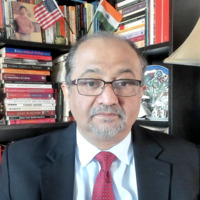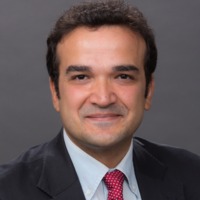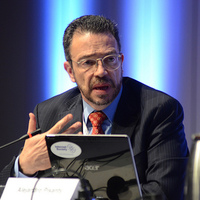
Linda Paxling
Blekinge Institute of Technology, School of Technoculture, Humanities and Planning, Department Member
I have a PhD in Technoscience Studies, Blekinge Institute of Technology, Sweden. My research interests currently intersect crisis informatics, sustainable HCI and feminist technoscience. I'm also dipping my toes in critical and speculative design practices and normcreative innovations.
We need new narratives, practices and care systems if we want to make it.
We need new narratives, practices and care systems if we want to make it.
less
Related Authors
Ian James Kidd
University of Nottingham
Andrea Calderaro
Cardiff University
Muqtedar Khan
University of Delaware
Beat Signer
Vrije Universiteit Brussel
B. Harun Küçük
University of Pennsylvania
Paul Levinson
Fordham University
Sean Cubitt
University of Melbourne
Alejandro Pisanty
Universidad Nacional Autónoma de México
Marko Monteiro
Universidade Estadual de Campinas
Ronald Labonte
University of Ottawa | Université d'Ottawa
InterestsView All (29)










Uploads
Papers by Linda Paxling
The different projects present a complex scenario of how technoscientific stories are
power-laden, contradictory and messy. I have located several dominant narratives that
affect, and are also affected by, the actors in the different technocultures. The dominant narrative of a linear development of economic growth and technological advancement creates technocultures of marginality and inequality that have ethical implications for individuals and infrastructures in Uganda. Working with feminist and postcolonial technoscience I challenge the binary innovation systems of science and modernity and argue for a more heterogeneous approach to development and epistemology. Another dominant narrative concerns the norms and values of how games and media technology can and should be performed. Working with critical design practices I encourage a learning platform that creatively critiques design processes of ‘the no longer and the not yet’.
The historical present has created unjust relationships that are systematically powerladen and violent. We cannot ignore these relationships. When we choose to reimagine science, technology and innovation as transformative with the possibility of
subverting these violent relationships, we may be able to foster more response-able and caring relationships. When we acknowledge knowledge production as situated, partial and located we learn to listen for more stories than one.
The different projects present a complex scenario of how technoscientific stories are
power-laden, contradictory and messy. I have located several dominant narratives that
affect, and are also affected by, the actors in the different technocultures. The dominant narrative of a linear development of economic growth and technological advancement creates technocultures of marginality and inequality that have ethical implications for individuals and infrastructures in Uganda. Working with feminist and postcolonial technoscience I challenge the binary innovation systems of science and modernity and argue for a more heterogeneous approach to development and epistemology. Another dominant narrative concerns the norms and values of how games and media technology can and should be performed. Working with critical design practices I encourage a learning platform that creatively critiques design processes of ‘the no longer and the not yet’.
The historical present has created unjust relationships that are systematically powerladen and violent. We cannot ignore these relationships. When we choose to reimagine science, technology and innovation as transformative with the possibility of
subverting these violent relationships, we may be able to foster more response-able and caring relationships. When we acknowledge knowledge production as situated, partial and located we learn to listen for more stories than one.